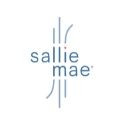Nelnet Student Loan Forgiveness
Nelnet is a federal student loan servicer. Get to know about the student loan forgiveness programs, the problems with Nelnet and lawsuits in which Nelnet was involved.
Updated by Chinmoy Dutta on 22nd July 2020
Nelnet is well known for its assistance in the repayment of federal student loans. You might have directly dealt with Nelnet as your student loan servicer or might have just heard about them. Nelnet is a student loan servicer, one of the nine used by the government. They are based in Lincoln, Nebraska. Nelnet handles student loan forgiveness through various student loan forgiveness programs while lenders put up their money. It is one of the largest student loan servicers and has acquired Great Lake Educational Services for $150 million.
Also, it should be noted that are a number of jobs available to help get your loans forgiven. Having an in-depth understanding of the various student loan forgiveness jobs out there is crucial to see if your job can get your loans forgiven.
Table of contents
- Student loan forgiveness through Nelnet
- Problems with Nelnet
- Nelnet Lawsuits
- Refinancing Nelnet Student Loans
Student loan forgiveness through Nelnet
It is important to know about your loan servicer in detail before you proceed with your student loan forgiveness with them. Learn more about the Nelnet student loan servicer before you go through the forgiveness plans offered by them. Nelnet borrowers are eligible to qualify for Nelnet student loan forgiveness through federal programs. The options open to federal borrowers are:
Public Service Loan Forgiveness (PSLF)
Borrowers can opt for the Public Service Loan Forgiveness program to get their student loan debt forgiven. Borrowers have to meet specific criteria to have their loans forgiven, which includes:
-
Borrowers should be working full-time for a government agency or qualifying non-profit organization
-
Borrowers have to make 120 qualifying payments
-
Borrowers should have Direct Loans or consolidated Direct Consolidation Loans
-
The repayment plans for student loan borrowers must be an income-driven repayment (IDR) plan
Student loan borrowers pursuing PSLF will have to submit an Employment Certification Form (ECF) to the FedLoan Servicing address listed on the form. Upon doing this, your employment qualifications are confirmed and your student loans are transferred to FedLoan Servicing, the official loan servicer of the PSLF program.
Sometimes Nelnet recommends keeping your loans with them while pursuing PSLF. Borrowers are advised against this. You’ll want to move your loans to FedLoan and get your employment verified. This will let you track your qualifying payments for future loan forgiveness.
Once you reach 120 qualifying payments, you can apply for PSLF by submitting the Public Service Loan Forgiveness (PSLF): Application For Forgiveness. If approved, any remaining federal student loan debt will be forgiven tax-free.
Temporary Expanded Public Service Loan Forgiveness (TEPSLF)
All the applications for PSLF do not qualify. If your application for PSLF was denied because some or all of your 120 payments didn’t qualify, you do have another option. The government created the Temporary Expanded Public Service Loan Forgiveness (TEPSLF) when they saw that PSLF guidelines weren’t clear.
The TEPSLF provides borrowers a second chance to qualify for loan forgiveness. To qualify for TEPSLF, the eligibility criteria are as follows:
-
Borrowers should have submitted a PSLF application which has been denied because some or all payments weren’t made under a qualifying repayment plan
-
The borrower should have had at least 10-years of full-time employment approved by FedLoan Servicing
-
The borrower must meet requirements for the last 12 months worth of payments before applying for TEPSLF, including the last payment before applying
-
The borrower must have made 120 qualifying payments under TEPSLF standards while working full-time for a qualifying employer
It’s worth looking into TEPSLF if you were denied PSLF because of a technicality. Not all loans qualify for TEPSLF, so make sure to look at all of the requirements before proceeding with this option.
Teacher Loan Forgiveness
Teachers with student loans through Nelnet can seek teacher loan forgiveness. Teachers may qualify to a maximum amount of $17,500 or $5,000 in student loans forgiven, depending on the subject area taught. To become eligible, the following requirements must be met:
-
Applicants must have full-time employment as a highly qualified teacher for 5 consecutive years
-
The applicant must have completed at least 5 academic years in a qualifying low-income school or educational service agency
-
The applicants must have borrowed qualifying loans before the end of their 5 academic years of teaching
This option should be contemplated against PSLF since the total amount of debt may have an impact on which forgiveness program is best for you.
Income-Driven Repayment (IDR) Forgiveness
When a borrower doesn’t qualify for PSLF, there’s another way to get a portion of student loan debt released. If you are on an IDR plan and have made payments for 20 to 25 years (depending on the specific IDR plan), any remaining student loan balance is forgiven.
There are four IDR plans borrowers can choose from:
-
Pay As You Earn (PAYE)
-
REvised Pay As You Earn (REPAYE)
-
Income-Based Repayment (IBR)
-
Income-Contingent Repayment (ICR)
However, unlike PSLF, taxes might be levied on your forgiven loans. According to the IRS, any forgiven student loan debt is considered taxable income.
Worried about your College Tuition? Find the best student loans suited for you.
Problems with Nelnet
Nelnet does not have as many complaints as Navient or FedLoan. However, according to many borrowers, they expect that the company managing their huge debts would have their back, which in reality is not the case.
Borrowers who are engaged with Nelnet often face the situation of poor customer service. There have been incidents where borrowers would call to request more information about a specific program they would often get basic information or sometimes even wrong information. Sometimes the representatives just simply don't know what is going on with your loans.
One of the complaints getting them into trouble is the way they handle the recertification process when you sign up for an income-driven repayment plan. There are incidents where when borrowers call Nelnet to re-certify, the representatives asked about the total amount of hours worked and hourly wages after which they based the monthly repayment amount on that number instead of checking borrower’s tax return.
Nelnet Lawsuits
Six complaints have been brought up by Jessica Olsen and Teri Smith against the Lincoln-based student loan servicing company. The U.S. District Court Judge John Gerrard dismissed 2 of those complaints, allowing 4 more to proceed to the lawsuit.
Omaha attorney Dave Domina, who along with Anthony Fiorentino, Cassandra Miller and Dan Edelman, all of Chicago, represents the women, said the class-action suit could potentially impact hundreds of thousands of borrowers roughly 6 million borrowers "lawyers said".
Focussing on the wrong way of handling income driving repayment plans, one of the complaints filed against Nelnet in June 2018 by Olsen of Oregon. She had applied for an income-based repayment plan for her federally backed student loans from Nelnet in 2014, and due to her low income, she was not required to make monthly payments as long as she reapplied annually.
Before she could electronically apply on Feb. 10, 2015, i.e. 10 days within the Jan. 31, 2015, the grace period - Nelnet capitalized her accrued interest and added $8,700 to her loan. Nelnet then placed Olsen on a standard repayment plan, which would have required her to pay $968.10 each month for a decade, according to the lawsuit.
When she applied for an income-based repayment plan again in April 2017, Olsen said a Nelnet employee advised her to place her account into forbearance, which allowed her to stop making payments, but once again added the accrued interest to the capital of her loan.
Olsen then argued that Nelnet violated the Nebraska Consumer Protection Act, the Nebraska Uniform Deceptive Trade Practices Act, and the Oregon Unlawful Trade Practices Act when they placed her account into forbearance.
U.S. District Court Judge John Gerrard found in favor of Olsen and Smith in four of their six claims.
Refinancing Nelnet Student Loans
Depending on your specific situation, refinancing your Federal Student Loans may seem like a better repayment option, however, it is advised to exhaust all possible options with federal student loans as refinancing federal student loans leads to loss of federal benefits.
You might need to establish a co-signer to qualify for refinancing and secure a low rate of interest. Refinancing Nelnet student loans can secure you a better interest rate and better repayment term, but before applying for it, you should learn in detail about it.
| Minumum Credit Score | Apply in as little as | Variable APR | Fixed APR | ||
|---|---|---|---|---|---|
 | Not Available | 15 minutes or less | 2.95 | 4.74 | View disclosures |
 | 620 | 2 minutes | 5.38%-16.99%1 | 4.43%-16.99%1 | View disclosures |
 | Not Available | 15 minutes | 1.13% - 11.23%¹ (with autopay) | 3.50% - 12.60%¹ (with autopay) | View disclosures |



93.jpg)


28.jpg)
